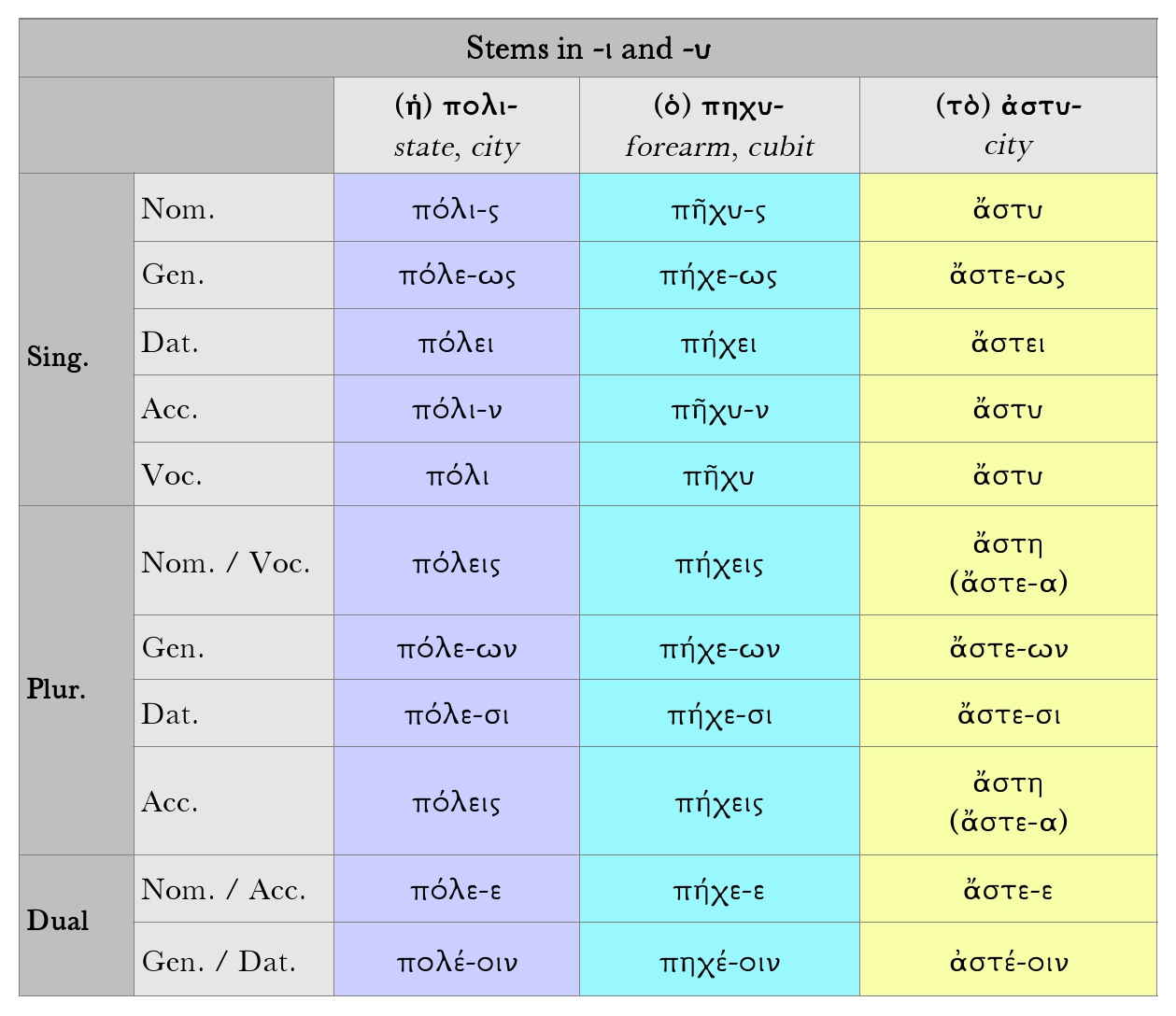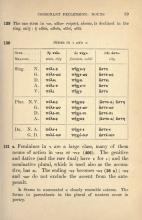131. a. Feminines in -ι are a large class, many of them nouns of action in -σις or -τις (§ 406). The genitive and dative (and the rare dual) have -ε- for -ι-; and the nominative plural, which is used also as the accusative, has -ει-. The ending -ος becomes -ως (§ 28.a); -ως and -ων do not exclude the accent from the antepenult.
b. Stems in unaccented -υ closely resemble ι-stems. The forms in parenthesis in the plural of neuters occur in poetry.


